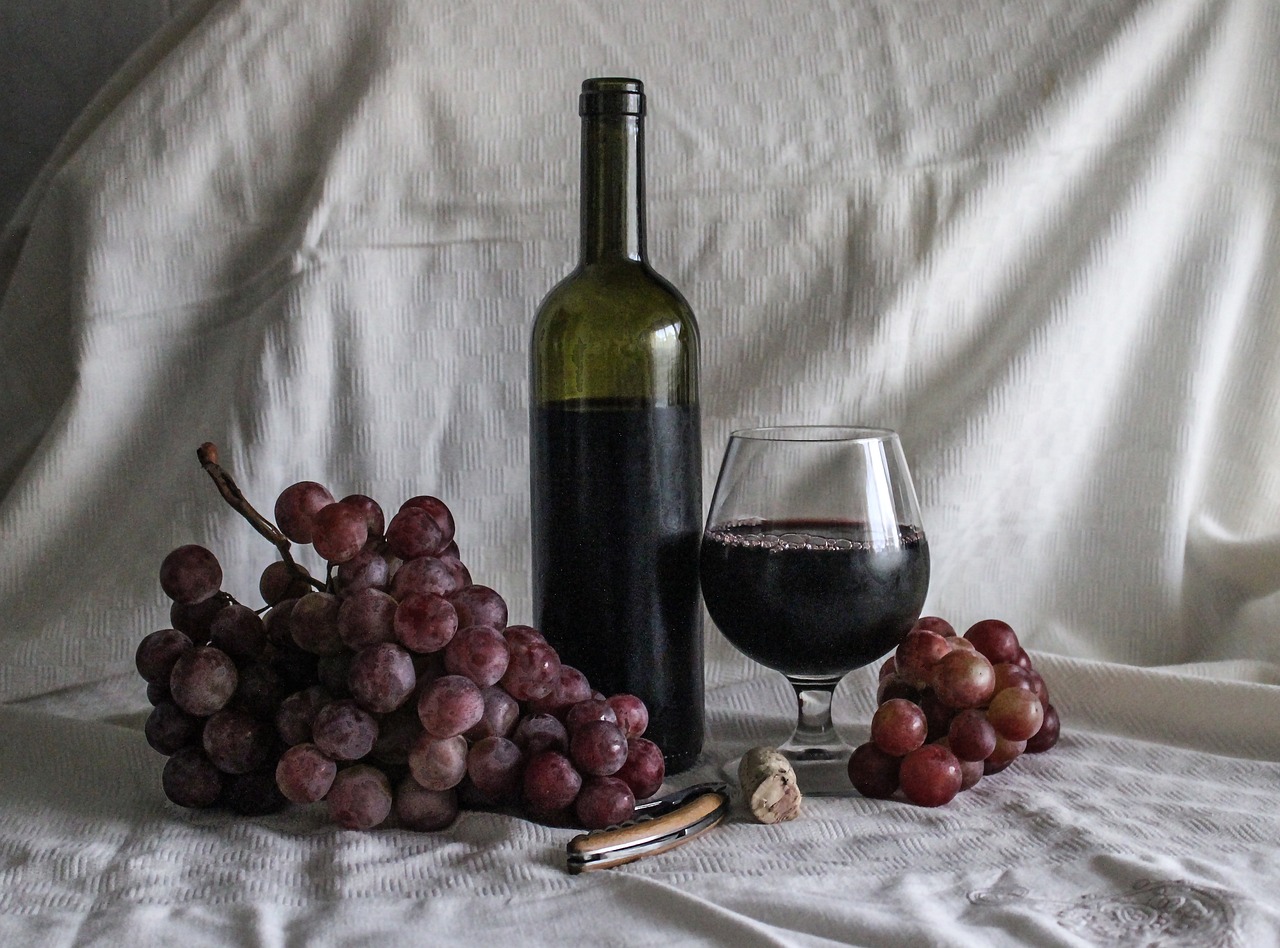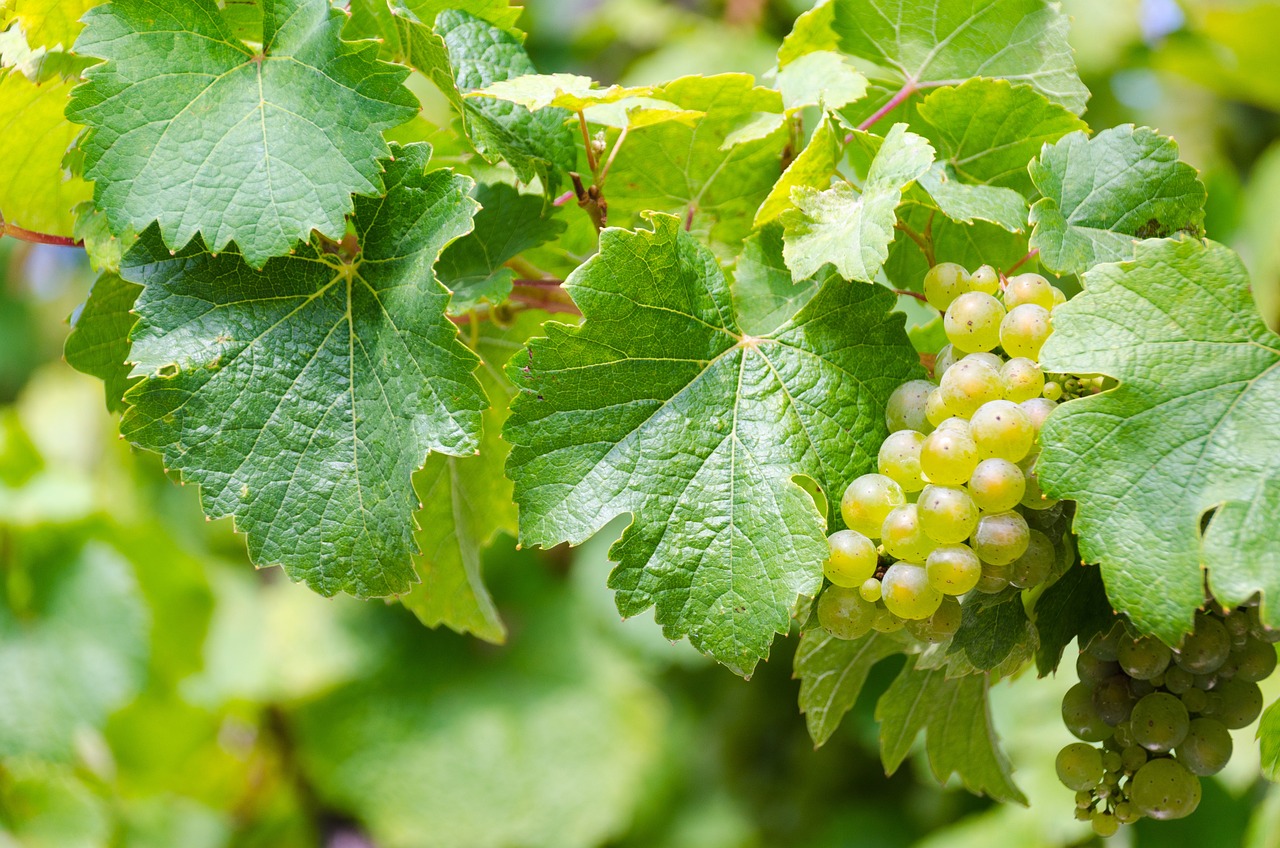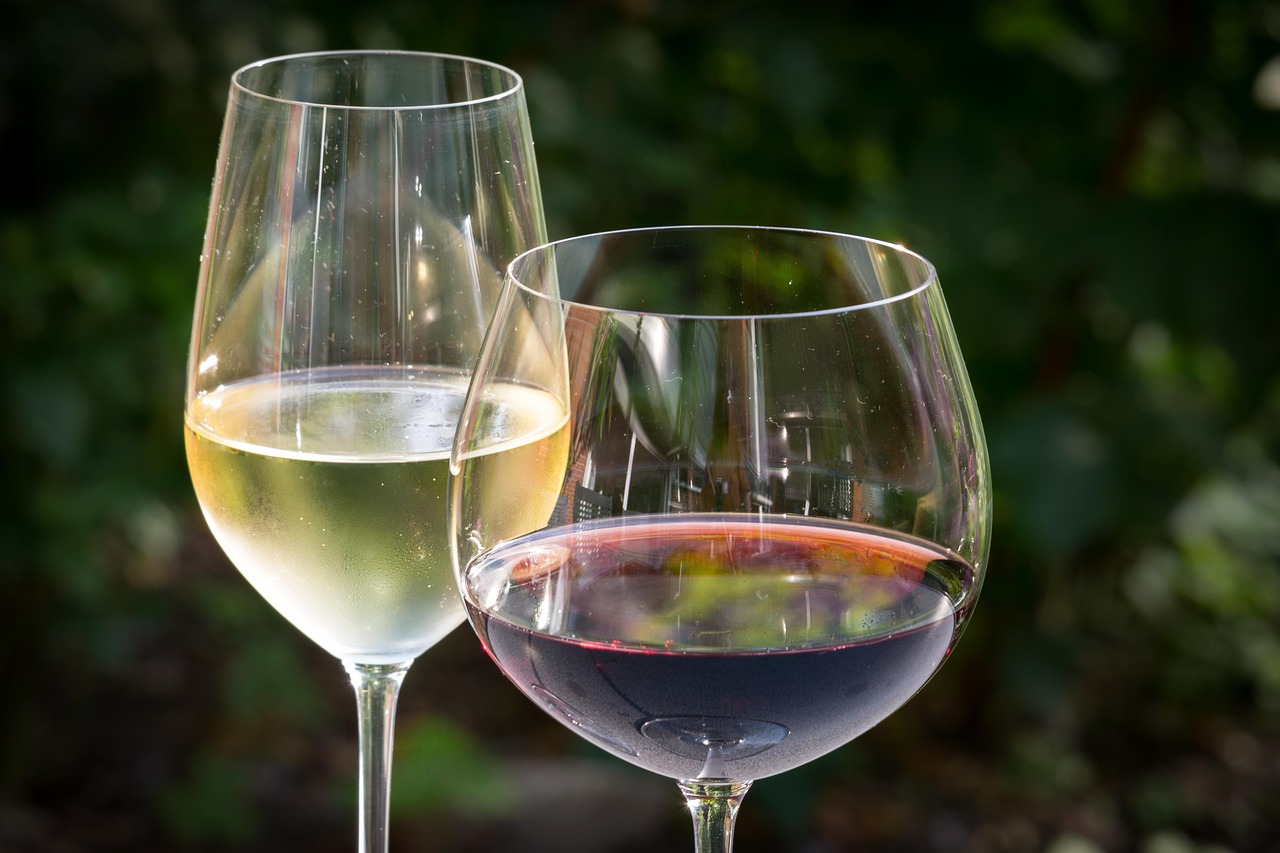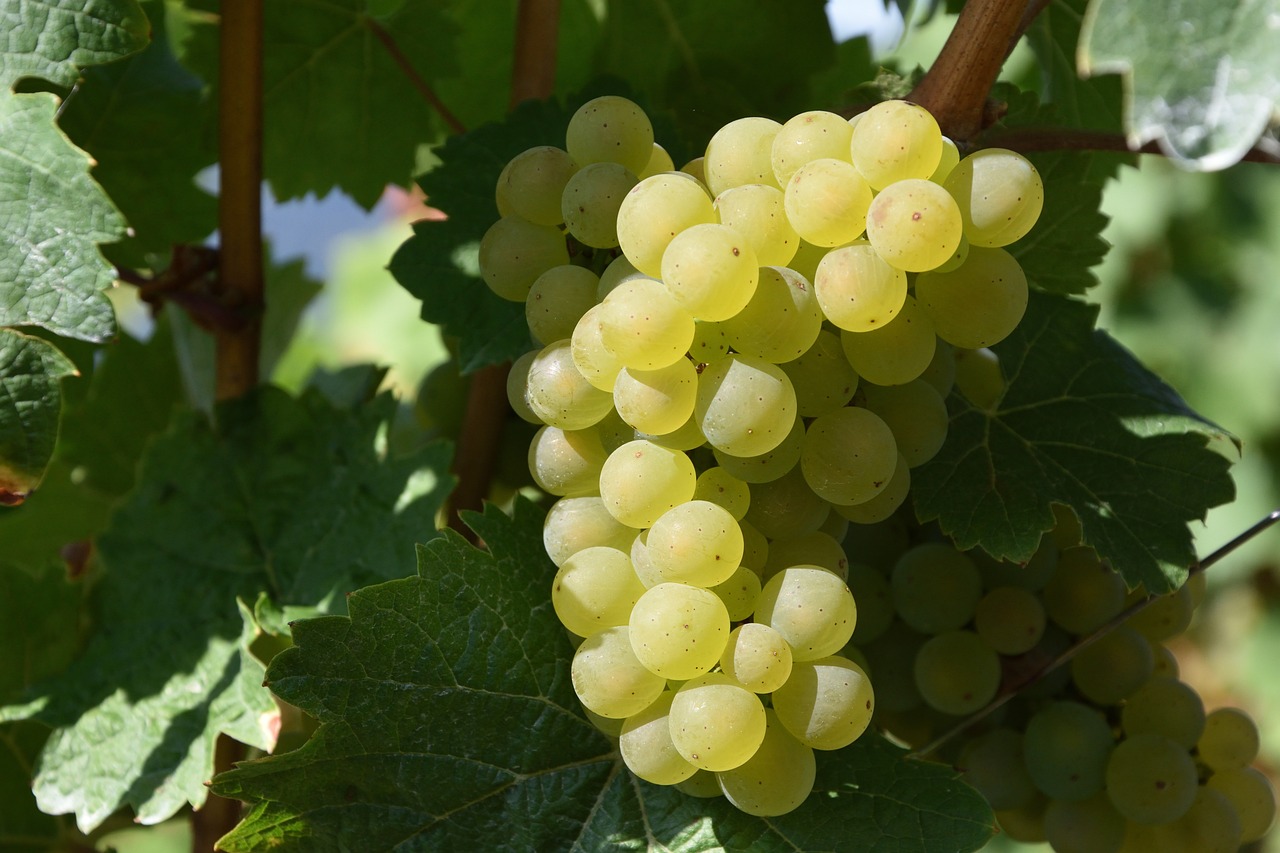What is Sustainable Wine and Why is It Important?
Sustainable wine is more than just a trendy label; it's a commitment to producing wine in a way that respects our planet and its resources. Imagine walking through a vineyard where every vine is nurtured with care, where the soil is rich with nutrients, and where the ecosystem thrives. That's the essence of sustainable wine. It embodies a holistic approach to viticulture that seeks to balance the needs of the environment, the economy, and society. But why should we care? Well, the wine we enjoy can have a significant impact on the world around us. By choosing sustainable wine, consumers are not just indulging in a delightful beverage; they are supporting practices that foster ecological balance and promote social responsibility.
So, what exactly makes wine sustainable? At its core, sustainable wine production adheres to a set of principles aimed at minimizing environmental impact while maximizing social and economic benefits. These principles often include:
- Environmental Stewardship: Utilizing farming practices that enhance biodiversity, conserve water, and reduce waste.
- Economic Viability: Ensuring that vineyards can thrive financially while maintaining sustainable practices.
- Social Equity: Supporting fair labor practices and contributing to the local community.
This commitment to sustainability is not just a marketing gimmick; it's a necessity. As climate change and environmental degradation continue to threaten traditional wine-growing regions, sustainable practices offer a way to adapt and thrive. For instance, vineyards that implement sustainable practices often see improved soil health and increased resilience to pests and diseases. This means healthier grapes and, ultimately, better wine! Plus, it creates a ripple effect, encouraging other industries to adopt similar eco-friendly practices.
In the coming sections, we will delve deeper into the various aspects of sustainable wine, exploring its environmental, economic, and social significance. We'll also discuss how consumer awareness is shaping the market and the challenges that sustainable wine producers face. So, pour yourself a glass of your favorite sustainable wine, sit back, and let's explore why this movement is crucial for the future of winemaking.
- What is the difference between organic and sustainable wine? Organic wine is produced without synthetic pesticides or fertilizers, while sustainable wine encompasses a broader range of practices focusing on environmental, social, and economic sustainability.
- How can I identify sustainable wines? Look for certifications or labels on the bottle, such as Certified Sustainable or similar designations from recognized organizations.
- Are sustainable wines more expensive? While some sustainable wines may cost more due to the practices involved, many sustainable producers strive to keep their prices competitive.

Understanding Sustainable Wine
Sustainable wine is not just a trendy label slapped on a bottle; it's a commitment to producing wine in a way that respects the environment, the community, and the economy. Imagine walking through a vineyard where the air is fresh, the soil is rich, and the vines are thriving without the heavy hand of synthetic chemicals. This is the essence of sustainable viticulture. It revolves around a set of principles and standards aimed at creating a harmonious relationship between wine production and nature. But what exactly does that mean?
At its core, sustainable wine production focuses on three main pillars: environmental health, economic viability, and social equity. These pillars work together to ensure that the winemaking process does not deplete resources or harm the ecosystems where vineyards thrive. For instance, sustainable practices encourage the use of organic fertilizers, crop rotation, and integrated pest management, which all contribute to healthier vines and a more balanced ecosystem. It’s like giving Mother Nature a high-five while enjoying a glass of your favorite Cabernet!
One of the key aspects of sustainable wine is the use of certification programs. These programs set specific guidelines that wineries must follow to be considered sustainable. Some well-known certifications include Organic, Sustainable Winegrowing, and Demeter Biodynamic. Each of these certifications has its own set of criteria, focusing on everything from water management to labor practices. Here’s a quick overview of some popular certifications:
| Certification | Focus Area |
|---|---|
| Organic | Elimination of synthetic pesticides and fertilizers |
| Sustainable Winegrowing | Holistic vineyard management practices |
| Demeter Biodynamic | Farming practices that enhance soil health and ecosystem |
But it’s not just about the grapes. Sustainable wine practices extend to the entire winemaking process—from the vineyard to the bottle. This includes energy-efficient production methods, eco-friendly packaging, and even social responsibility towards workers. When a winery commits to sustainability, it’s not just a badge of honor; it's a lifestyle choice that resonates with consumers who care about the impact of their purchases.
In essence, understanding sustainable wine is about recognizing that every bottle holds a story—not just of the grapes, but of the land, the people, and the practices that brought it to life. It's about making choices that benefit not only our taste buds but also the planet. So next time you pour a glass of sustainable wine, remember, you're not just enjoying a delicious beverage; you're participating in a movement towards a more sustainable future.

The Importance of Sustainability in Viticulture
Sustainability in viticulture is not just a trendy buzzword; it’s a vital approach that can determine the future of the wine industry. Imagine a world where vineyards flourish without depleting the earth’s resources, where the air is clean, and the soil is rich and vibrant. This is the vision that sustainable wine production aims to achieve. By embracing environmentally friendly practices, vineyards can ensure their operations are not only profitable but also beneficial to the planet. So, why is sustainability so crucial in viticulture? Let's dive in!
First and foremost, adopting sustainable practices helps preserve natural resources. Water scarcity is a growing concern globally, and the wine industry is no exception. By implementing water-saving techniques, vineyards can significantly reduce their water consumption, ensuring that they do not contribute to the depletion of this precious resource. Additionally, sustainable viticulture promotes soil health, which is essential for producing high-quality grapes. Healthy soil is teeming with life, supporting a diverse ecosystem that benefits both the vineyard and the surrounding environment.
Moreover, sustainability in viticulture has profound social implications. It fosters a sense of community among wine producers, consumers, and local residents. When vineyards prioritize sustainable practices, they often engage in fair labor practices, support local economies, and contribute to the overall well-being of the community. This creates a ripple effect, where consumers feel good about their purchasing decisions, knowing they are supporting ethical practices.
Economically, sustainable wine production can lead to increased profitability. Although the initial investment in sustainable practices may seem daunting, the long-term benefits often outweigh the costs. For instance, reducing reliance on chemical fertilizers and pesticides can lower operational costs and improve vineyard resilience to pests and diseases. As consumers become more environmentally conscious, the demand for sustainable wines is on the rise, allowing producers to tap into a lucrative market segment.
In summary, the importance of sustainability in viticulture cannot be overstated. It is a holistic approach that benefits the environment, society, and the economy. By prioritizing sustainable practices, vineyards can create a legacy of responsible wine production that will endure for generations to come. And as consumers, we have the power to support this movement by choosing wines that align with our values. So, next time you raise a glass, think about the journey that wine has taken to reach you and the impact your choice can make!
- What are the main principles of sustainable viticulture? Sustainable viticulture focuses on three main principles: environmental stewardship, economic viability, and social equity.
- How does sustainable wine production impact the environment? Sustainable practices help reduce carbon footprints, conserve water, and promote biodiversity, leading to healthier ecosystems.
- Can sustainable wine be as good as traditional wine? Absolutely! Many sustainable wines are recognized for their exceptional quality and flavor, often competing at the highest levels in wine competitions.
- How can I identify sustainable wines when shopping? Look for certifications such as Organic, Biodynamic, or specific sustainability labels that indicate environmentally friendly practices.
- Are sustainable wines more expensive? While some sustainable wines may have a higher price point due to the costs of sustainable practices, many are competitively priced, especially as demand grows.

Environmental Benefits
Sustainable wine practices are not just a trend; they represent a pivotal shift in how we approach viticulture and winemaking. By embracing environmentally friendly techniques, vineyards can significantly reduce their carbon footprints while promoting ecological balance. This is crucial in a world where climate change looms large, threatening not just our beloved wine but the very ecosystems that support life. Sustainable viticulture fosters a harmonious relationship between the land and the vines, ensuring that both can thrive for generations to come.
One of the most notable environmental benefits of sustainable wine production is the conservation of water. Vineyards often require substantial amounts of water, but sustainable practices emphasize efficient water management. Techniques such as drip irrigation and rainwater harvesting allow vine growers to minimize water usage without compromising the quality of the grapes. In fact, these methods can lead to healthier vines and, ultimately, better wine. The reduction in water use not only helps preserve this precious resource but also protects local waterways from runoff and pollution.
Moreover, sustainable practices contribute to the enhancement of soil health and biodiversity. Healthy soil is the foundation of any successful vineyard, and sustainable methods promote its vitality. For instance, cover cropping and organic composting enrich the soil with essential nutrients, fostering a thriving environment for beneficial microorganisms. This not only improves grape quality but also helps sequester carbon in the soil, combating climate change. Additionally, by avoiding harmful chemicals and pesticides, sustainable vineyards encourage a diverse ecosystem, attracting beneficial insects and wildlife that contribute to the vineyard's overall health.
To illustrate the impact of sustainable practices on the environment, consider the following table that highlights key benefits:
| Environmental Benefit | Description |
|---|---|
| Water Conservation | Utilizing techniques like drip irrigation to minimize water usage. |
| Soil Health | Improving soil quality through organic practices and composting. |
| Biodiversity | Encouraging a diverse ecosystem that supports beneficial species. |
| Reduced Carbon Footprint | Lowering greenhouse gas emissions through eco-friendly practices. |
In conclusion, the environmental benefits of sustainable wine production are profound and far-reaching. By prioritizing practices that conserve water, enhance soil health, and promote biodiversity, vineyards can play a crucial role in preserving our planet. As consumers become more aware of these practices, their choices can drive the wine industry toward a more sustainable future. So next time you raise a glass of wine, consider the journey it took to get there and the positive impact sustainable practices can have on our environment.
- What is sustainable wine? Sustainable wine refers to wine produced using environmentally friendly practices that promote ecological balance.
- Why is sustainability important in viticulture? Sustainability is crucial for preserving natural resources and ensuring the longevity of wine production.
- How do sustainable practices benefit the environment? They help reduce carbon footprints, conserve water, enhance soil health, and promote biodiversity.
- What are some water conservation techniques used in vineyards? Techniques include drip irrigation and rainwater harvesting.
- How does sustainable wine production impact the economy? It can lead to cost savings, increased market demand, and enhanced brand reputation.

Water Conservation Techniques
Water conservation is not just a buzzword in the world of sustainable wine production; it's a critical practice that can drastically affect the health of vineyards and the quality of the wine produced. With climate change making water scarcity a pressing issue, wineries are increasingly adopting innovative techniques to manage this precious resource effectively. One of the most popular methods is drip irrigation, which delivers water directly to the plant roots, minimizing evaporation and runoff. This targeted approach ensures that vines receive the right amount of water without wastage, leading to healthier grapes and more efficient water use.
Another effective technique is rainwater harvesting. Many vineyards are now installing systems to collect and store rainwater, which can then be used for irrigation during drier periods. This not only reduces reliance on municipal water supplies but also helps in managing stormwater runoff, which can lead to soil erosion and nutrient loss. By capturing rainwater, wineries can create a sustainable cycle that benefits both the environment and their operations.
Additionally, soil moisture monitoring technology has revolutionized water management in vineyards. By using sensors to track moisture levels in the soil, vineyard managers can determine the optimal time for irrigation, ensuring that vines are watered only when necessary. This precision agriculture approach not only conserves water but also improves grape quality by preventing overwatering, which can dilute flavors and aromas.
Furthermore, some wineries are exploring the use of cover crops between vine rows. These cover crops can help retain moisture in the soil, reduce evaporation, and even improve soil health. By fostering a diverse ecosystem within the vineyard, cover crops can enhance biodiversity, making the vineyard more resilient to pests and diseases while also conserving water.
In summary, adopting water conservation techniques is essential for sustainable wine production. By implementing methods such as drip irrigation, rainwater harvesting, soil moisture monitoring, and cover cropping, vineyards can significantly reduce their water usage while maintaining the quality of their wines. This not only supports the environment but also positions wineries as responsible stewards of natural resources, which is increasingly important to today's eco-conscious consumers.
- What is sustainable wine? Sustainable wine is produced using environmentally friendly practices that promote ecological balance.
- Why is water conservation important in winemaking? Water conservation helps reduce waste, promotes healthy vine growth, and ensures the sustainability of wine production amid increasing water scarcity.
- How do wineries implement water conservation techniques? Wineries use methods like drip irrigation, rainwater harvesting, soil moisture monitoring, and cover cropping to manage water use effectively.
- What are the benefits of sustainable wine practices? These practices lead to environmental protection, improved soil health, and potentially higher quality wines, while also appealing to a growing market of eco-conscious consumers.

Soil Health and Biodiversity
When we talk about soil health in the context of sustainable wine, we’re not just discussing dirt; we’re talking about a living, breathing ecosystem beneath our feet. Healthy soil is the backbone of any vineyard, as it provides essential nutrients, retains moisture, and supports a diverse range of organisms. Imagine the soil as a bustling city, teeming with life where every organism, from the tiniest microbe to larger earthworms, plays a vital role in maintaining the balance of that ecosystem.
One of the key principles of sustainable viticulture is the promotion of biodiversity. This means encouraging a variety of plants and animals in and around the vineyard. Why is this important? Well, a diverse ecosystem can naturally combat pests and diseases, reducing the need for harmful pesticides and fertilizers. For example, when vineyards are interspersed with native plants, they attract beneficial insects that prey on vineyard pests. It’s like having an army of tiny soldiers defending your grapes!
Additionally, sustainable practices such as cover cropping and crop rotation can significantly enhance soil structure and fertility. Cover crops, like clover or vetch, not only prevent soil erosion but also fix nitrogen in the soil, which is crucial for grapevine health. These practices contribute to a vibrant ecosystem that supports not just the vines but also the surrounding flora and fauna.
To illustrate the impact of soil health and biodiversity on vineyard productivity, consider the following table:
| Practice | Benefit |
|---|---|
| Cover Cropping | Improves soil structure, prevents erosion, and enhances nitrogen levels. |
| Diverse Planting | Attracts beneficial insects and enhances pollination. |
| Crop Rotation | Reduces soil depletion and interrupts pest cycles. |
Ultimately, the synergy between soil health and biodiversity is pivotal for the long-term sustainability of vineyards. By nurturing the soil and its inhabitants, wine producers can create a more resilient agricultural system that not only yields high-quality grapes but also contributes positively to the environment. This holistic approach ensures that future generations can continue to enjoy the fruits of the vine while also preserving the planet's health.
- What is the role of biodiversity in sustainable wine production? Biodiversity helps control pests naturally, supports pollination, and enhances soil health, leading to better grape quality.
- How does soil health affect wine quality? Healthy soil provides essential nutrients and improves water retention, which can lead to more flavorful and aromatic grapes.
- Are there specific practices that promote soil health in vineyards? Yes, practices like cover cropping, crop rotation, and reduced tillage can significantly enhance soil health.
- Can consumers influence sustainable practices in the wine industry? Absolutely! Increased demand for sustainable wines encourages wineries to adopt eco-friendly practices.

Economic Impact of Sustainable Wine
The economic impact of sustainable wine extends far beyond the vineyard itself, creating a ripple effect that touches various aspects of the wine industry and local economies. As more wineries adopt sustainable practices, they not only contribute to environmental preservation but also unlock a treasure trove of economic benefits. Imagine a winery that not only produces exceptional wine but also saves money, attracts more customers, and enhances its brand reputation—all while being kind to Mother Earth. Sounds like a win-win, right?
One of the most significant advantages of sustainable wine production is cost savings. By implementing eco-friendly practices, such as reducing water usage and minimizing chemical inputs, wineries can significantly lower their operational costs. For instance, vineyards that invest in sustainable irrigation systems can cut down on water bills while maintaining healthy grapevines. This is crucial in regions where water scarcity is a pressing issue. Furthermore, by using organic fertilizers and pest management techniques, wineries can reduce their dependence on expensive synthetic chemicals, leading to further savings.
In addition to direct cost savings, sustainable practices can also lead to increased market demand. Today's consumers are more environmentally conscious than ever before, and many are willing to pay a premium for products that align with their values. A study conducted by Wine Market Council found that over 60% of wine consumers are interested in purchasing sustainable wines. This growing demand creates a lucrative opportunity for wineries that embrace sustainability. By marketing their eco-friendly practices, wineries can attract a loyal customer base that prioritizes sustainability.
| Benefits of Sustainable Wine | Impact |
|---|---|
| Cost Savings | Reduced operational expenses through efficient resource management |
| Increased Market Demand | Attraction of environmentally conscious consumers willing to pay a premium |
| Enhanced Brand Reputation | Positive public perception leading to greater customer loyalty |
Moreover, the enhanced brand reputation that comes with sustainable practices cannot be overlooked. Wineries that commit to sustainability often find themselves in the spotlight, receiving accolades and recognition from industry awards and environmental organizations. This positive exposure can significantly enhance a winery's reputation, making it more appealing to both consumers and distributors. In an industry where brand loyalty is paramount, being known as a sustainable producer can provide a competitive edge that is hard to beat.
However, it's important to note that the transition to sustainable practices can come with its own set of challenges. The initial investment in sustainable technologies and certifications can be daunting for some wineries. Yet, many find that the long-term economic benefits outweigh these upfront costs. As the saying goes, "You have to spend money to make money," and this is particularly true in the realm of sustainable wine production.
In conclusion, the economic impact of sustainable wine is profound and multifaceted. From cost savings and increased market demand to enhanced brand reputation, the benefits are clear. As more wineries recognize the importance of sustainability, they not only contribute to a healthier planet but also position themselves for success in a rapidly evolving market. The future of wine is not just about great taste; it's also about making choices that benefit the environment and the economy.
- What is sustainable wine? Sustainable wine is produced using environmentally friendly practices that promote ecological balance.
- Why is sustainability important in the wine industry? It helps preserve natural resources, supports biodiversity, and ensures the longevity of wine production.
- Can sustainable wine be more expensive? While some sustainable wines may have a higher price point, many consumers are willing to pay a premium for eco-friendly products.
- What are some examples of sustainable practices in vineyards? Techniques include water conservation, organic farming, and biodiversity promotion.

Consumer Awareness and Demand
In recent years, there has been a significant shift in consumer behavior, particularly regarding the choices people make when it comes to food and beverages. Wine lovers are increasingly becoming more aware of the impact their purchases have on the environment. This growing consciousness has led to a surge in demand for sustainable wine, which is produced using eco-friendly practices. But what exactly does this mean for the average consumer? Well, it means that when you choose sustainable wine, you are not just indulging in a delightful glass of vino; you are also supporting a movement that prioritizes the health of our planet.
According to recent studies, approximately 70% of wine consumers express a preference for wines that are produced sustainably. This is not just a passing trend; it reflects a deep-rooted desire for quality and responsibility. Consumers are becoming more educated about sustainability and are actively seeking wines that align with their values. They want to know that the wine they enjoy comes from vineyards that prioritize ecological balance and social equity.
So, how does this awareness influence purchasing decisions? For many, it boils down to a few key factors:
- Transparency: Consumers are looking for brands that openly share their sustainable practices. Wineries that provide detailed information about their methods are more likely to win over eco-conscious buyers.
- Certification: Certifications from recognized organizations can boost consumer confidence. Labels like Certified Organic or Sustainable Winegrowing reassure buyers that they are making responsible choices.
- Storytelling: People love a good story! Wineries that share their journey towards sustainability, including challenges and triumphs, often create a deeper connection with consumers.
The rise of social media has also played a crucial role in amplifying consumer awareness. Platforms like Instagram and Facebook allow wineries to showcase their sustainable practices visually. Beautiful images of vineyards, organic farming techniques, and the passionate people behind the wine can capture the hearts of potential buyers. This is especially important for younger generations, who are more likely to support brands that reflect their values.
Moreover, as consumers become more informed, they are also more willing to pay a premium for sustainable wine. A recent survey indicated that nearly 60% of consumers would choose to spend more on a bottle of wine if they knew it was produced sustainably. This willingness to invest in eco-friendly options not only boosts sales for wineries but also encourages more producers to adopt sustainable practices.
However, the challenge remains: how do wineries effectively market their sustainable offerings? It requires creativity and a genuine commitment to sustainability. Wineries can leverage their unique stories and practices to create engaging content that resonates with their audience. For example, they could host events that allow consumers to experience their sustainable practices firsthand, such as vineyard tours or tastings featuring sustainably produced wines.
In conclusion, the demand for sustainable wine is not just a trend; it's a reflection of a broader shift towards conscious consumerism. As awareness continues to grow, both consumers and wineries will benefit from embracing sustainable practices. By choosing sustainable wine, consumers are not only enjoying a high-quality product but also contributing to a healthier planet. So, the next time you’re perusing the wine aisle, consider reaching for that bottle marked as sustainable—you’ll be making a choice that matters.
1. What makes a wine sustainable?
Sustainable wine is produced using practices that minimize environmental impact, conserve resources, and promote social equity. This includes organic farming, water conservation, and reducing chemical use.
2. How can I identify sustainable wines?
Look for certifications on the label, such as Certified Organic or Sustainable Winegrowing. Additionally, many wineries share their sustainable practices on their websites and social media.
3. Why should I choose sustainable wine?
Choosing sustainable wine supports environmentally friendly practices, promotes biodiversity, and contributes to the well-being of communities involved in wine production.
4. Is sustainable wine more expensive?
While some sustainable wines may be priced higher due to the costs of sustainable practices, many consumers are willing to pay a premium for the environmental benefits and quality associated with sustainable production.

Marketing Sustainable Wine
In today’s world, where consumers are becoming increasingly aware of their choices, is not just a trend; it’s a necessity. Wineries that embrace sustainable practices must effectively communicate their commitment to the environment and society to capture the hearts of eco-conscious consumers. But how do you do that? It requires a blend of storytelling, transparency, and strategic outreach.
First and foremost, storytelling is key. Every bottle of sustainable wine has a unique story behind it—whether it’s about the vineyard's journey towards sustainability, the innovative techniques used in the winemaking process, or the positive impact on the local community. By sharing these stories through various channels such as social media, blogs, and newsletters, wineries can create a deeper connection with their audience. Imagine sipping a glass of wine, knowing that it not only tastes good but also contributes to a healthier planet. That’s a story worth sharing!
Transparency is another critical component. Consumers today are savvy; they want to know exactly what goes into their wine and how it’s produced. Providing detailed information about sustainable practices, such as organic farming methods, water conservation techniques, and biodiversity initiatives, can build trust and credibility. Consider creating a dedicated section on your website that outlines these practices, or even better, use QR codes on labels that link to informative videos or articles. This not only educates consumers but also enhances their overall experience.
Moreover, leveraging partnerships with environmental organizations can amplify your message. Collaborating with these groups can not only enhance your credibility but also expose your brand to new audiences who are already passionate about sustainability. Think of it as a win-win situation—your winery gets more visibility while supporting a cause that resonates with your values.
Additionally, participating in sustainable wine fairs and events can provide a platform to showcase your products. These gatherings attract like-minded individuals who appreciate the hard work that goes into sustainable viticulture. Here, you can offer tastings, share your story, and even educate attendees on the importance of sustainability in the wine industry.
Lastly, it’s essential to engage with your customers. Utilize social media platforms not just to promote your wines, but to start conversations about sustainability. Ask questions, share tips on sustainable living, and encourage your followers to share their experiences with your wines. This creates a community around your brand, fostering loyalty and encouraging word-of-mouth marketing.
In conclusion, marketing sustainable wine is about weaving a narrative that resonates with consumers, being transparent about your practices, and engaging your audience in meaningful ways. By doing so, wineries not only enhance their brand image but also contribute to a more sustainable future for the wine industry and the planet.
- What makes a wine sustainable? Sustainable wine is produced using practices that aim to minimize environmental impact, promote social equity, and ensure economic viability.
- How can I identify sustainable wines? Look for certifications such as Organic, Biodynamic, or specific sustainable wine certifications from recognized organizations.
- Is sustainable wine more expensive? While some sustainable wines may be priced higher due to the practices involved, many are competitively priced, reflecting the quality and care taken in their production.
- How can I support sustainable wineries? Choose to purchase wines from certified sustainable vineyards and share their stories on social media to help spread awareness.

Challenges in the Sustainable Wine Market
The sustainable wine market, while blossoming with potential, faces a myriad of challenges that can hinder its growth and adoption. One significant hurdle is the cost of certification. Many wineries aspire to become certified as sustainable, but the financial burden associated with the certification process can be daunting. This includes expenses related to audits, documentation, and the implementation of sustainable practices. For small and medium-sized wineries, these costs can be a substantial barrier to entry, leading them to question whether the investment is worth the potential return.
Moreover, market competition poses another challenge. The wine industry is saturated with a plethora of brands, each vying for consumer attention. Sustainable wines, while gaining traction, still compete against established brands that may not prioritize sustainability. This competition can make it difficult for sustainable wineries to differentiate themselves and capture market share. Consumers often face a paradox of choice, where the abundance of options can lead to confusion about which brands genuinely practice sustainability.
Additionally, there is a lack of consumer awareness regarding what sustainable wine truly means. Many consumers may not fully understand the principles behind sustainable viticulture or the benefits it offers. This gap in knowledge can lead to skepticism, making it harder for wineries to communicate their sustainable practices effectively. Furthermore, without a clear understanding of sustainability, consumers may prioritize price or brand loyalty over eco-friendly practices, further complicating the market dynamics.
Another consideration is the impact of climate change on sustainable wine production. As weather patterns shift, vineyards face challenges such as unpredictable rainfall, extreme temperatures, and increased pest pressures. These factors not only affect grape quality but also the viability of sustainable practices. Wineries must continually adapt to these changes, which can strain resources and complicate sustainability efforts.
Despite these challenges, the sustainable wine market is not without hope. Many wineries are finding innovative solutions to overcome these obstacles. For instance, some are collaborating with organizations that provide financial assistance for certification, while others are investing in consumer education initiatives to raise awareness about the benefits of sustainable wine. By addressing these challenges head-on, wineries can pave the way for a more sustainable future in the wine industry.
- What is sustainable wine? Sustainable wine refers to wine produced using environmentally friendly practices that promote ecological balance.
- Why is sustainability important in viticulture? Sustainability in viticulture is crucial for preserving natural resources, ensuring the longevity of wine production, and benefiting the environment, economy, and society.
- What challenges do sustainable wineries face? Some challenges include the cost of certification, market competition, lack of consumer awareness, and the impact of climate change.
- How can consumers support sustainable wine practices? Consumers can support sustainable wine by choosing certified sustainable wines and educating themselves about the practices that contribute to sustainability in viticulture.
Frequently Asked Questions
- What is sustainable wine?
Sustainable wine refers to wine produced through environmentally friendly practices that aim to maintain ecological balance. This includes methods that reduce carbon footprints, conserve water, and promote biodiversity in vineyards.
- Why is sustainable wine important?
Sustainable wine is crucial for preserving natural resources and ensuring the long-term viability of wine production. By adopting sustainable practices, vineyards can help protect the environment, support local economies, and enhance social responsibility.
- How does sustainable viticulture benefit the environment?
Sustainable viticulture practices contribute to environmental health by reducing harmful chemical use, improving soil quality, and conserving water. These practices also support biodiversity, which is essential for a balanced ecosystem.
- What techniques are used for water conservation in vineyards?
Water conservation techniques in vineyards include drip irrigation, rainwater harvesting, and soil moisture monitoring. These methods help optimize water usage and ensure that vineyards thrive even in drier conditions.
- How does sustainable wine impact the economy?
The economic impact of sustainable wine can be significant. Sustainable practices can lead to cost savings, increased market demand, and enhanced brand reputation, ultimately benefiting both producers and consumers.
- Is there a growing consumer demand for sustainable wine?
Yes! Consumer awareness of sustainability is on the rise, and many people prefer to purchase products that are environmentally friendly. This trend encourages wineries to adopt sustainable practices to meet consumer expectations.
- What marketing strategies work for promoting sustainable wine?
Effective marketing strategies for sustainable wine include transparent communication about sustainable practices, storytelling that connects consumers to the vineyard, and highlighting certifications that prove sustainability efforts.
- What challenges do sustainable wine producers face?
Sustainable wine producers often encounter challenges such as high certification costs, market competition, and the need for consumer education. Addressing these hurdles is essential for the growth of the sustainable wine industry.



















